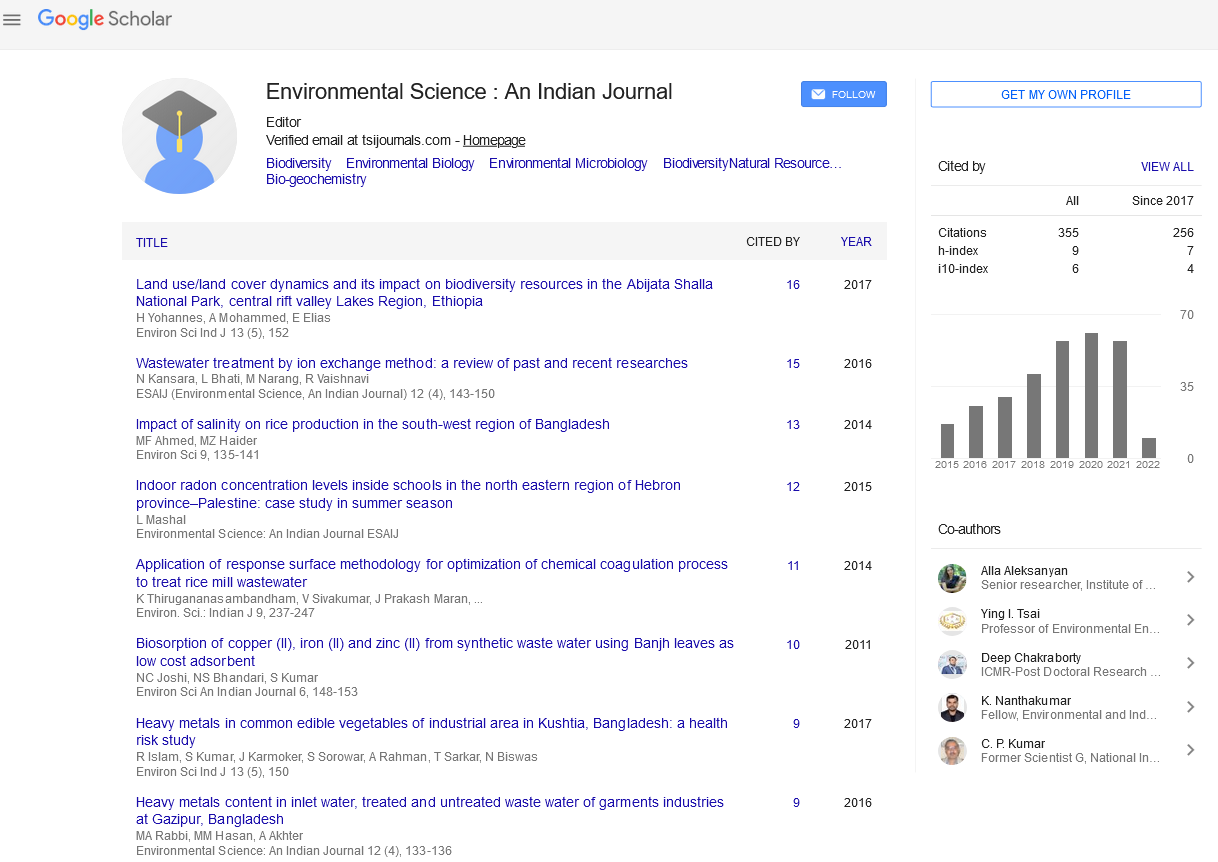Abstract
Biodegradation by Composting of Heterogeneous Mixture of Municipal Organic Solid Waste into Organic Fertilizer using Black Soldier Fly (Hermetiaillucens) (Diptera: Stratiomyidae) Larvae
Author(s): D. SarpongAim: The study was to determine the ability of the Black soldier fly larvae (BSFL) to degrade heterogeneous mixture of municipal organic solid waste and analyze the quality of by-product as organic fertilizer for agricultural uses. Globalization is known to affect peoples’ consumptions, usage of solid materials that eventually results huge solid wastes. According to Leton and Omotosho, solid wastes is defined as non-liquid or nongaseous products (e.g. trash, junk and or refuse) of human activities that are unwanted. Generation of Municipal solid waste (MSW) increases in line with developmental rate of any country. Africa is known to be the least developed region in the world with 38% urbanization. Although, this is low compared to many other countries in the world, African countries are experiencing rapid development with growth rate of four percent per annum.
Methods: Biodegradation of the organic waste was determined by varying waste feed treatment (2.0, 2.5, 3.0, 3.5, to 4.0 and control of 2.0 kg) of heterogeneous mixture of municipal organic solid waste from nearby hostels, restaurant, market, and households. Each of the bioreactor system received equal number of viable BSFL (i.e. 2,000) which were 5- day old. To analyze the nutrients concentration of the organic fertilizer with larvae, the substrate and final compost were assessed based on the levels of NPK,Lignin, Cellulose, Lipase, C:P as well C:N ratios. To assess the toxic levels of the final organic fertilizer in terms of heavy metals, the presence and levels of As, Cd, Fe, Pb and Ni were also examined.
Results: The analysis showed that there was significant percentage increase of nitrogen, phosphorus and potassium levels, i.e., 41 % (SD ± 0.7 %), 32 % (SE ± 0.2 %) and 77 % (SE ± 0.2 %) respectively. It was found that the larvae degradation was a little over 50% of the total substrate within 2 weeks. The study showed a reduction in heavy metal concentrations after larvae degradation over time.
Conclusion: The study shown that the black soldier fly larvae has the ability degrade heterogeneous mixture of municipal organic solid waste with corresponding increase in concentration of NPK and reduction in C:N ratio among the treatment groups. The study further discovered that some of the heavy metals under investigation had decreased to an acceptable level according to the international regulatory standards.

